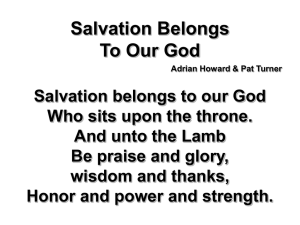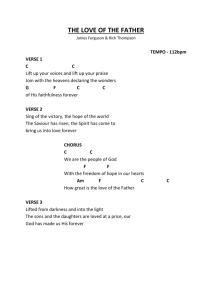FOREVER YOUNG
advertisement
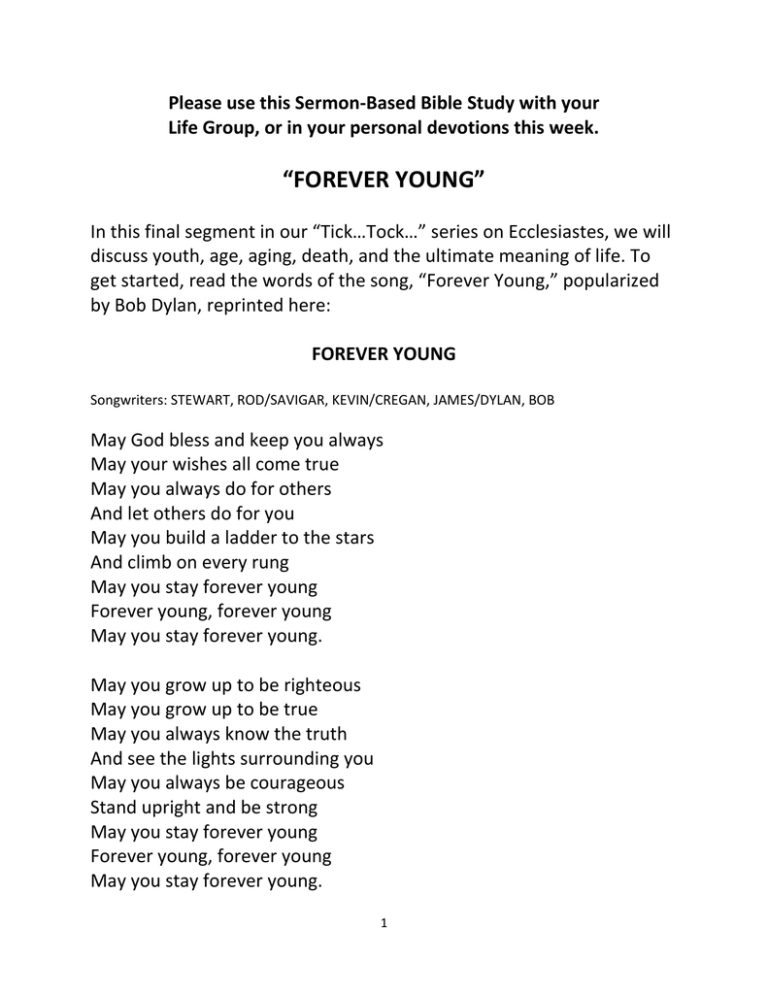
Please use this Sermon-Based Bible Study with your Life Group, or in your personal devotions this week. “FOREVER YOUNG” In this final segment in our “Tick…Tock…” series on Ecclesiastes, we will discuss youth, age, aging, death, and the ultimate meaning of life. To get started, read the words of the song, “Forever Young,” popularized by Bob Dylan, reprinted here: FOREVER YOUNG Songwriters: STEWART, ROD/SAVIGAR, KEVIN/CREGAN, JAMES/DYLAN, BOB May God bless and keep you always May your wishes all come true May you always do for others And let others do for you May you build a ladder to the stars And climb on every rung May you stay forever young Forever young, forever young May you stay forever young. May you grow up to be righteous May you grow up to be true May you always know the truth And see the lights surrounding you May you always be courageous Stand upright and be strong May you stay forever young Forever young, forever young May you stay forever young. 1 May your hands always be busy May your feet always be swift May you have a strong foundation When the winds of changes shift May your heart always be joyful And may your song always be sung May you stay forever young Forever young, forever young May you stay forever young. [ Lyrics from: http://www.lyricsfreak.com/b/bob+dylan/forever+young_20021492.html ] 1. What do you think is the point of this song? 2. What makes you—right now, at your age—feel young? Why? 3. Give examples (but not names) of the following: Young people who act young Young people who act old Old people who act old Old people who act young 4. From the categories above, whom do you dislike being around, and whom do you enjoy being around? Why? Read Ecclesiastes 12:1-8, then continue the discussion: 5. Describe some godly Christians who are at least one generation younger than you. In what ways do they live according to what Solomon teaches in vs. 1? 2 6. There’s a humorous saying that goes like this: Youth is such a wonderful thing. Too bad it’s wasted on the young. How does this compare—and contrast—with vs. 1? Various Bible commentaries were consulted to help make sense out of vs. 2-5. With some variation, many agree that Solomon used symbolism to describe negative outcomes of the aging process. Here are possible symbolic meanings for the contents of each verse: Vs. 2, failing eyesight; vs. 3, feebleness, a stooped back, losing teeth, and blindness; Vs. 4, lameness, diminished hearing, disturbed sleep, deafness; Vs. 5, fear of falling, whitening of hair, loss of energy and sex drive, and eventually death itself, while life goes on for others. 7. How does our current culture try to slow down the aging process? 8. Compare our culture’s attitude toward aging with Leviticus 19:32 and Job 32:6-7. What differences are there in attitude toward the aged? Why is that? Share some examples of where the opposite is true in our culture, where the old do not respect the young: 9. For decades the Church has done much to segregate the generations. Think of groupings like age-based Sunday School classes/Bible studies; youth groups; senior adult groups, and other ministries. What are the positives and negatives of this segregation? 10. The only living creature on earth that naturally gets stronger as it ages is the eagle. Read Isaiah 40:28-31. In what ways are these verses a positive response to Solomon’s gloomier approach in Ecclesiastes 12:2-8? 11. How is the symbolism of Isaiah 40:28-31 fulfilled in Jesus’ words to the Samaritan woman in John 4:13-14? And how do these words 3 of Jesus provide the antidote to Solomon’s dour conclusion in Ecclesiastes 12:7-8? Conclude this study by discussing the following questions: 12. What did you (or do you, or will you) most want to know about God when you were (are, or will be) the following ages, and why? Age 7 Age 14 Age 21 Age 35 Age 49 Age 63 Age 84 Age 105 13. If you were to pick one “life verse” from anywhere in the Bible, and it would be broad enough to guide your life at all of the ages listed above, what would be that verse, and why? _______________ Don’t forget that Sunday, September 2 is our annual “Question & Answer” message day in all services at all sites. Questions must be submitted to the church office by Tuesday, August 28! 4
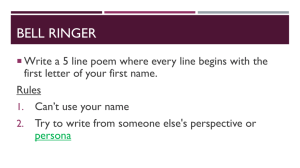
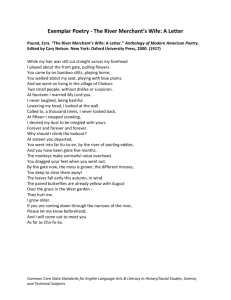

![Come Alive [Lyrics, 77 bpm, 4/4]](http://s3.studylib.net/store/data/008909577_1-f75c3727a35722ac03a4dc382530bce6-300x300.png)
